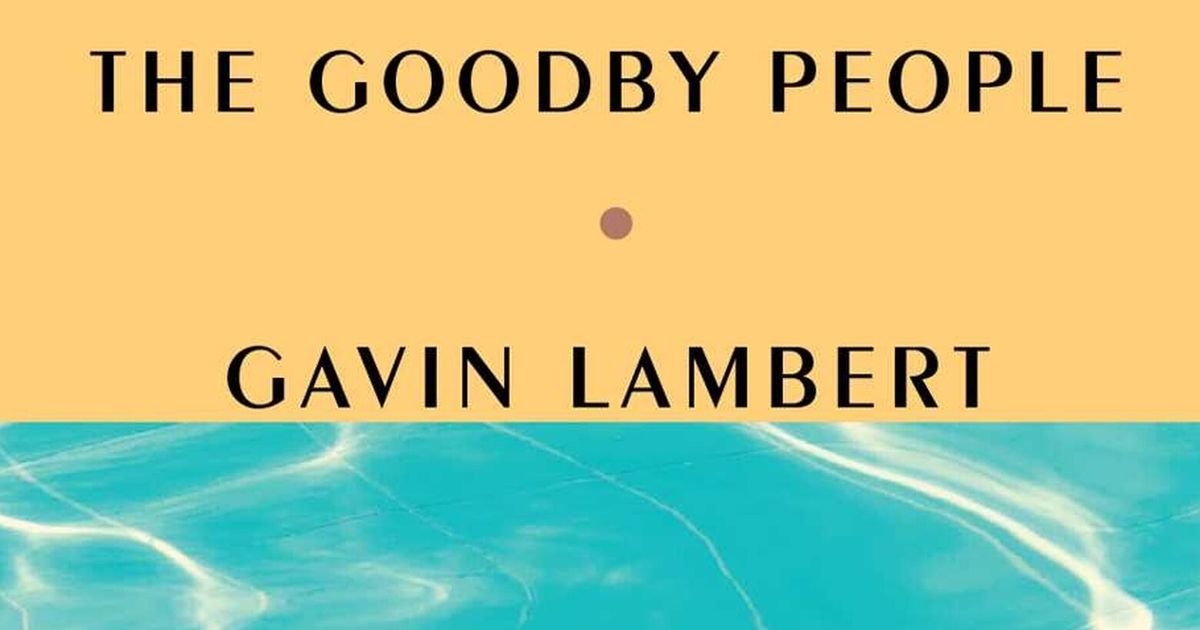Table of Contents
The impeccably curated New York bookstore McNally Jackson has launched a publishing arm, McNally Editions, devoted to resurfacing “hidden gems” and “lost classics.” These are works that have long gone out of print or been otherwise neglected by the manufacturing unit that is e-book publishing with no reflection on their merit or timeliness. Now they are supplied a new lifetime.
“The Goodby People”
By Gavin Lambert (McNally Editions, $18)
Gavin Lambert made a profession of cataloging the lives of Hollywood’s chic and capricious in his novels, biographies, criticism and screenplays. 1971’s “The Goodby People” will take put in the specific period when Hollywood was exiting its Golden Age, and the city known as Los Angeles was creating an adjacent but not unrelated mythology. This is a metropolis wherever ageing starlets and major writers mix socially with transients and other “refugees from the prepared useful entire world.”
With the quips of Dorothy Parker and the aloof, surveying eye of Joan Didion, our unnamed narrator — a Lambert doppelgänger — chronicles his experiences with many individuals that pass in and out his everyday living: a reclusive star, a vain draft dodger and a modern L.A. transplant being haunted by the ghost of a lengthy neglected leading girl. Like any novelist obsessed with his figures, the narrator is savvy, composed, and for the most aspect, just allows occasions unfold all around him. He observes “the aura of joylessness which surrounds so numerous rich, powerful, and intelligent people” and an actress with a voice “perfectly pitched for lying.” This wry, chatty portrait feels like a essential piece of L.A.’s cultural heritage, and it warrants to be on display screen proper next to Eve Babitz.
“The Oppermanns”
By Lion Feuchtwanger (McNally Editions, $18)
The Pulitzer-winning creator Joshua Cohen wrote in his introduction for “The Oppermanns” that it was “one of the final masterpieces of German Jewish society.” This characterization could sound interchangeable with the regular phatic praise you’d discover in any novel’s introduction if you are examining fairly distractedly on an plane as I to begin with was, but they are text that chill your blood when you end to contemplate that the German Jewish culture from which Lion Feuchtwanger arose was currently being systemically extinguished in true time as he wrote this novel.
“The Oppermanns” follows a relatives with a affluent home furniture company whose extremely foundation lay in getting rendered “good service” to the German army all through the Franco-Prussian War a letter signed by a discipline marshal declaring so was ceremoniously framed on their office environment wall. Nevertheless, their devotion to Germany was no match for the growing tide of nationalism enveloping the place. Gustav, the Oppermann who remaining the family’s business enterprise to examine literature, at 1 issue attempts to influence his loved ones that regardless of mounting violence, the German folks are essentially rational since Goethe’s textbooks experienced sold a hundred million copies. The genius of “The Oppermanns” is in its demonstration of how nationalistic mythmaking worked in serious time, and how a layered still full-hearted patriotism was traded for “doglike obedience” and obligatory worship of the country’s founding lore. We are in an period when Holocaust education is at a woeful nadir and these who bore witness will shortly no more time be here to remind us of our nonetheless-relevant heritage. We will continue to have “The Oppermanns.” This is the energy of literature.
“Something to Do With Paying Attention”
By David Foster Wallace (McNally Editions, $18)
I have been let down to see the way David Foster Wallace has turn into anything of a punchline in selected pockets of the internet, especially among the individuals who (just guessing here) have possible under no circumstances browse a website page of his do the job. He can be a demanding writer, inclined to extensive digressions, serial descriptions and elaborate principles. But if you attune yourself to the rhythms of his sentences, you’ll come across that something divine and delicate will arise.
“Something to Do With Paying out Attention” — the novella rigorously extracted from Wallace’s unfinished “The Pale King” — is about boredom, and what can be located inside of it. The to start with third is an accounting of facts the narrator remembers from rising up in the 1970s: sideburns, wastoids, the phrase “excellent,” the antique ships on screen for the bicentennial, what Tang tasted like when you ate it straight from the container with your finger. Wallace has an eye for Americana: the kitsch, the dysfunction, the atomization. You soon notice the novel is the origin story of an IRS agent who has uncovered anything sacred in the tedium of his operate. As a result of a mix of feminine-focused diet program medicine employed recreationally and a sermon offered by a substitute accounting professor, this character has found how to hone his notice, how to become vigilant to the cascade of information that in fact make up a life.
Wallace is a keen observer of America’s bureaucracies, but he is a lot a lot more intrigued in a non secular critique than a political one. What meaning can an person uncover when they dispense with the fantasies of childhood and confront what existence is truly like? In a culture profoundly steeped in nihilism and irony, Wallace’s voice is a balm.



